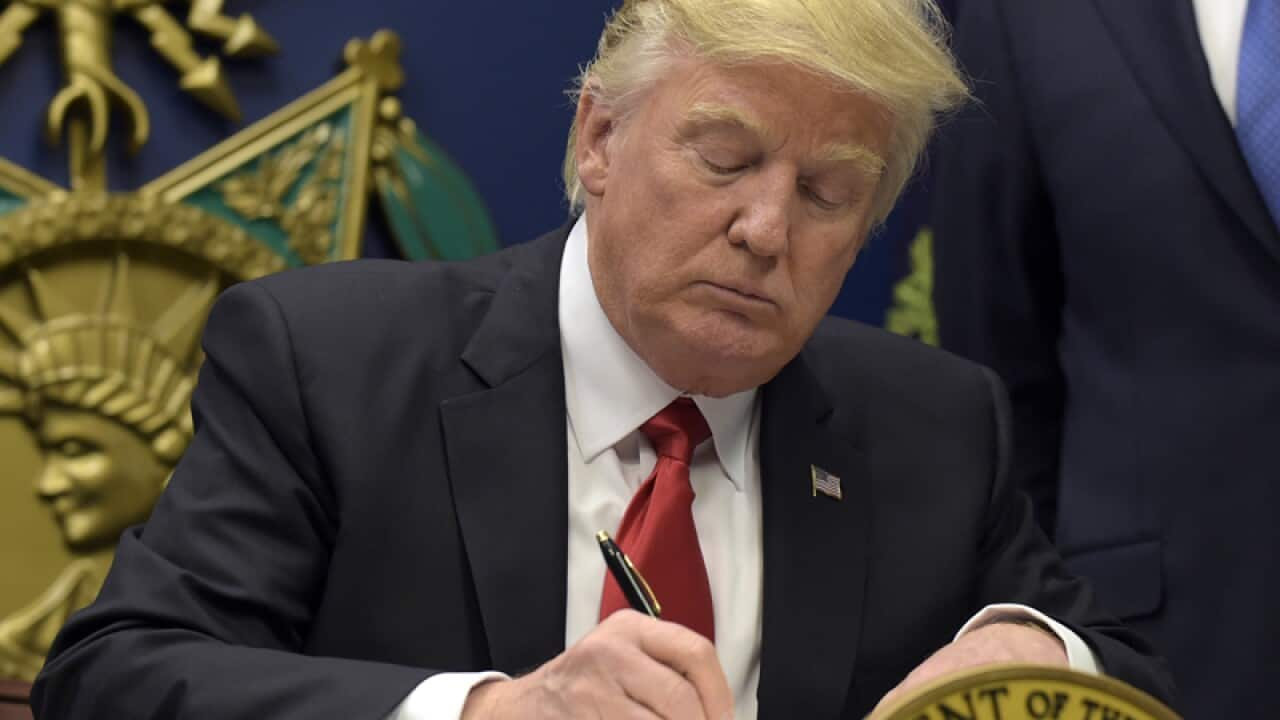US President Donald Trump has put a four-month hold on allowing refugees into the United States and temporarily barred travellers from Syria and six other Muslim-majority countries, but there is debate over whether the move is legal under the constitution.
Trump defended the move by saying his administration needs time to develop more stringent screening processes for refugees, immigrants and visitors from those countries.
"I'm establishing new vetting measures to keep radical Islamic terrorists out of the United States of America. Don't want them here," Trump said.
"We only want to admit those into our country who will support our country and love deeply our people," he said.
The order seeks to prioritise refugees fleeing religious persecution, a move Trump said was aimed at helping Christians in Syria.
That led some legal experts to question whether the order was constitutional, with one group saying it would announce a court challenge on Monday.
The Council on American-Islamic Relations said the order targets Muslims because of their faith, contravening the US Constitutional right to freedom of religion.
"President Trump has cloaked what is a discriminatory ban against nationals of Muslim countries under the banner of national security," said Greg Chen of the American Immigration Lawyers Association.
The bans, though temporary, took effect immediately, causing confusion for would-be travellers with passports from Iran, Iraq, Libya, Somalia, Sudan, Syria and Yemen.
Even legal permanent residents from those countries - people with "green cards" allowing them to live and work in the United States - are being advised to consult immigration lawyers before travelling outside the country, or trying to return.
Abed Ayoub of the American-Arab Anti-Discrimination Committee said he had fielded about 100 queries from people anxious about the order.
"It's chaos," Ayoub said.
Trump's order also suspends the Syrian refugee program until further notice, and will eventually give priority to minority religious groups fleeing persecution.
Trump said in an interview with the Christian Broadcasting Network that the exception would help Syrian Christians fleeing the civil war there.
Legal experts were divided on whether this part of the order would be constitutional.
"If they are thinking about an exception for Christians, in almost any other legal context discriminating in favour of one religion and against another religion could violate the constitution," said Stephen Legomsky, a former chief counsel at US Citizenship and Immigration Services.
But Peter Spiro, a professor at Temple University Beasley School of Law, said Trump's action would likely be constitutional because the president and Congress are allowed considerable deference when it comes to asylum decisions.
"It's a completely plausible prioritisation, to the extent this group is actually being persecuted," Spiro said.
Democrats were quick to condemn Trump's order as un-American, saying it would tarnish the reputation of the United States as a land that welcomes immigrants.
Republican Speaker Paul Ryan, who had panned Trump's original campaign pledge to ban Muslims from entering the United States, expressed some support.
"President Trump is right to make sure we are doing everything possible to know exactly who is entering our country," Ryan said.









